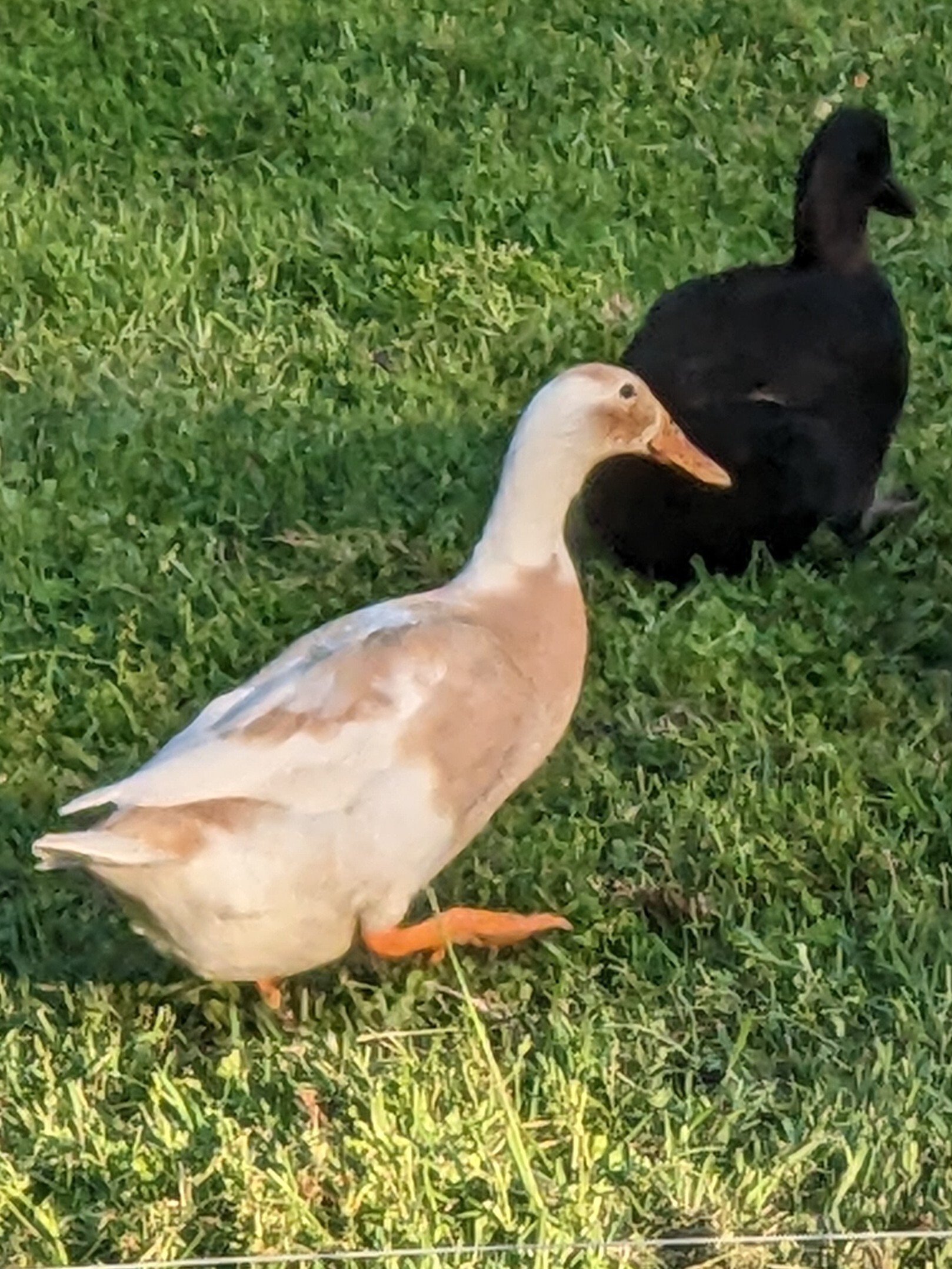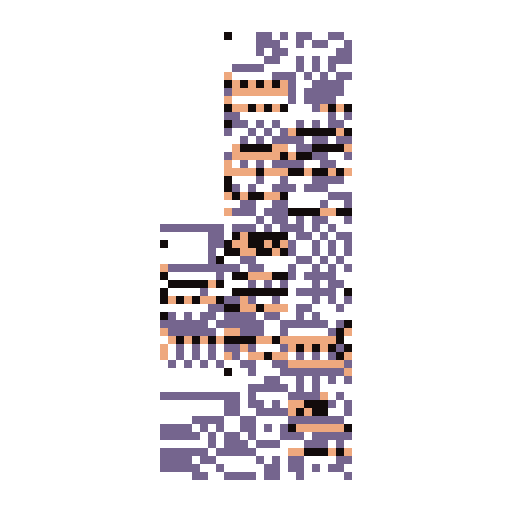a perennial favorite topic of debate. sound off in the replies.
Copyright protection should only apply to people and if they are alive.
We’re stifling artistic innovation when copyright is controlled by corporations.
I think it should be limited to thirty years at the absolute maximum. In addition, I feel as though copyright should have to be defended. If the copyright holder does not make their copyrighted work available for a certain amount of time, it should fall into public domain.
I don’t believe in the concept of “intellectual property” so any laws built around that concept are nonsense to me.
Laws about protecting intellectual property are to me, like laws preventing the poaching of unicorns, they don’t make sense because the thing they are built around doesn’t exist.
I do think there should be protections against fraud, ie: falsely attributing somebody else’s work or not giving due credit. But the idea that a person, group of people, or a company can “own” a concept in the same way somebody owns a shovel or owns a house, that just makes zero sense to me.
It’s a fallacy, it’s like somebody saying, “I tried to go see Harvard University, but the tour guide just spent hours showing me a bunch of different buildings. I never actually saw Harvard University.”
I can understand owning an object, I even understand owning a piece of land to some degree, although that’s somewhat dubious IMO. But an idea? It just makes no sense to me.
I’m thinking of a planet right now called “HS-9970 Xagian Prime” where the oceans are all honey and the land is all gingerbread. How do I “own” that idea? What does that even mean?
I came up with the concept in my imagination sure. I’m the person that originated it, I put some kind of labor into it. But it’s impossible to steal from me, unlike land, a shovel, etc. Unless you literally went into my brain, removed the idea somehow and placed it into your brain.
Do I have some sort of rights to that idea? What rights though. Rights of ownership with normal property seem to be rooted in some kind of basic violations of person. As in, the only way you can steal my shovel is if you deprive me directly of the ability to use it. Your stealing directly entails me losing the ability to use that thing. Stealing my land entails kicking me off of it by force against my will, depriving me of using it.
But if you “steal” my idea of Xagian Prime, what am I being deprived of? Anything you add to it is your own creation, it follows the same rules as my ideas I came up with. One could argue that you couldn’t have come up with your new ideas without starting from mine, but that seems somewhat dubious, and even if true, it’s not like my idea of Xagian Prime was 100% original. It required concepts and ideas that other people already came up with too, and we don’t see that as “stealing.” I still have full access to my ideas of Xagian Prime.
One might argue that I am deprived of potential profit or social gains, but that seems extremely dubious. How am I “owed” potential profit that isn’t guaranteed?
It seems to me that the only arguments that are compelling for so called “Intellectual Property” are actually just arguments about fraud. Like it’s wrong to claim my idea of Xagian Prime is actually yours and then sell books on it. Sure, but that has nothing to do with property ownership, that is just fraud. That’s the same as saying it’s wrong to go around pretending I’m selling medicine when actually it’s just water with food coloring.
I am open to changing my position, but I’ve been discussing this for years with folks and I’ve never heard a compelling argument for the existence of IP. The most compelling arguments I’ve heard are ones about rights of people to have their work represented in ways they allow. That makes sense, but again, that seems like an argument against fraud, not for IP.
Copyright laws, specially author’s right, have one good reason to exist : it legally tied up a work with a person or an entity. This allows to create a responsibility about the work itself. For the audience, it allows the audience to held responsible the author for the content of the work. Before copyright laws a work of art was the voice of gods and such…
Sure, but you don’t need copyright for that. You can just have a registry of works or many other solutions that don’t involve all the baggage and nonsense of copyright.
You need a law of some kind, that will make clear the relationship between the author and the work. A simple registry is just there to retain informations, it doesn’t make magically people care about things… Laws are better for this.
In what way would you be “making clear the relationship?” Like restrict usage?
Yes or granting usage. Being an author isn’t always about forbidding, it can be about changing the work or adapting it as well.
The author can defend the work against uses that would change the meaning of the work itself (integrity).
Lastly, the author can’t deny the work is his own. And for a bunch of artist this is a bummer.
All this is more of an author’s right thing, but I think it’s slowly coming to copyright laws as well (online publication).
deleted by creator
As a hobby artist, I think copyright should exist to protect individual artists commercial rights. Whether I sell my work or not, should be up to me. On the other hand, we should not punish people for finding inspiration in other people’s works or using them as wallpapers, and usually we don’t.
It should not be legal for H&M to scrape Artstation or Deviantart for images to print on their T-shirts, not even if 20 years have passed since it was posted. If they want to use an image, they should have to contact the artist and get permission first.
I think works owned by corporations is a different beast. Corporations should also be allowed to profit of their works, but I don’t think they should be able to hold copyrights as a default. Copyright should protect those who make art, not those who commission art.
It was created to protect individual artists commercial rights. But at this point, it’s rent-seeking. Corporations who own copyrighted works long after the death of an artist/writer/musician and the sale of the asset by the heirs benefits nobody but the mega-corps who have the power to brutally enforce them.
Society does not benefit by this.
Surely there has to be a better way to encourage and reward creative people. In truth, how many truly prosper by their works? A handful. It’s much more common to create something in service of a corporation, who then immediately owns the rights to it.
If only artists could hold copyrights to their works, this wouldn’t be an issue.
Corporations are usually not the ones who create art, they just hire people who do. If Disney spends an astronomical amount on money on hiring artists and producing a work, there should be a separate set of laws that protects them from someone sweeping in and stealing the franchise or the product. It shouldn’t be down to copyright-laws, because Disney isn’t an artist.
Copyright also grants the right to opt out of the commercialization of your work. Even if you really like a painting I have done, you should not have the right to demand that I or someone else sell prints of it. If I instead want to just keep it on my Instagram profile, in my attic or hanging on the walls of a gallery, I should be free to do so.
If you make something public people have the right to look at it and to get inspired by it, but I don’t think it’s unfair to ask that the artist retains the commercial rights to it.
I’d go with the following:
- Everything is CC-BY by default, copyright is opt-in.
- If someone opts in to copyright, it ends whenever they die (I’m going to be nice and say “until the last person dies” for a group project).
I hate copyright, but understand that some people really want to keep their work for themselves. Maybe they can do that - in a world where copyrighting isn’t default, we’d have so much to choose from that we wouldn’t need the content made by the kind of people who decide to prevent sharing their work.
I think your first idea is very interesting. It essentially turns public domain (with attribution) into the default. I wonder whether you have to opt-in to copyright before sharing, or if you get a small indow to opt-in after sharing. For example, a creator shares something online that “goes viral” unexpectedly without specifying the work is copyrighted. Do they get a period (say 60 days) to specify “wait, this is under copyright”?
I was thinking “lifetime opt-in but no retroactive effect”, but a “grace period” could be interesting for viral cases, yeah!
My biggest frustration with copyright is in situations when the item is out of print or rights owned by an entity that has dissolved. There really should be a way to republish such works without waiting many decades for it to be in public domain.
I’ve mentioned this before here, but my stance is 20 years flat for a work owned by a corporation, and life for works owned by an individual.
why lifetime copyright ownership for individuals?
Mostly, I felt it was important to discourage IP ownership by corps by making the individual term much longer. I’m open to making it shorter, but still considerably longer than that of corporations. An individual isn’t going to be able to harm infringers the way that, say, Nintendo can, and does.
from a certain standpoint I understand wanting to protect your ideas, they are yours you came up with them. but at the same time it can restrict innovation harshly, i think it’s bandai namco but they have a copyright on loading screen games in the video games and like Nintendo has a copyright for the d-pad design. it’s just too much
I believe you are conflating patents with copyrights.
Copyright and patents: 10-20 years maximum, depending on the industry. Trademarks should be forever, because that kinda defeats the point of a trademark if it expires.
Let me give an example I understand personally: Rubik’s cubes. Rubik’s cubes were invented by Ernő Rubik, and gained widespread popularity in the early 80s. In 1982 there was a speed solving competition, where Minh Thai got the world record fastest solve at 22.95 seconds. After this, the “craze” died out and it lost much popularity. Ideal Toy Corp sold the puzzle and retained a patent on it until 2000, after which was the second cubing craze. Sales doubled between 2001 and 2003, and the speed solving competitions came back. This time, however, solvers were not buying the stiff, clunky, catchy, sandy “Rubik’s Cubes”, they were at first appearing to be buying Chinese “knock-offs”, brands which quickly developed recognition and brand loyalty among speed solvers. They were designed for speed, they had looser springs, less plastic, but “torpedoes” to keep them in place under other pieces, and cut out corners to allow imprecise movement. You can buy a better cube than the Rubik’s Cube for less money than a Rubik’s Cube. You can buy 10 speed cubes for the price of one Rubik’s Brand speed cube, their failed attempt at capitalizing on the market. Rubik’s Brand has spent the entire time up until very recently not interacting with the rest of the community, trying to sue companies out of selling their products.
Trademarks should be forever, because that kinda defeats the point of a trademark if it expires.
I’d counter this by saying that Trademarks should be for the life of the corporation, and corporate lifespans should be mandated to be somewhere under 50 years.
At a conceptual level, businesses aren’t a static thing that are owned by a single corporation forever. Some businesses start off as family owned small businesses, or grow in exchange for outside investment, etc. When a parent passes on a family business to their child, something about that business has changed, of course. But should the child, or the grandchild, or future generations lose out on the name after 50 years?
Moving up the scale in size/complexity, you’ll have partnerships between multiple owners/partners, who might want to work together temporarily, or for as long as they can, on some kind of joint partnership. A band, for example, wants to release songs under their band name, even as members might change over time.
And for larger corporations, there’s a value in licensing, as well. The local McDonald’s might literally be a family owned business, but franchised under strict rules by which it may use McDonald’s trademarks in exchange for adherence to corporate’s prescribed procedures and policies (and lots of money).
Some kind of expiration date doesn’t really make sense in that situation, either.
Either way, brands and reputation last more than 50 years, and do actually provide value to the consumer. Even from the largest corporations in the world.
im alright with the protection of specific works from copying, but patents can fuck off
‘ideas’ should not be protected unless there was a reasonable expectation of privacy or compensation
I.E. ideas that were made public without consent or ideas that were part of a sales pitch or something, sure, but the moment that ideas are made public with consent, they should be considered public domain
exclusive right to make something because you happened to be the first one to think of it shouldnt exist, other parties should have the option to directly compete with your product to encourage innovation
also, any trademark law that isnt expressly for consumer protection can fuck off
if i buy a laptop that clearly has the apply logo on it, sure, i should be able to reasonably expect that i am actually buying an apple laptop, with the quality expected of an apple laptop
if im buying a t-shirt with an apple logo on it, or stickers with the apple logo on them, or a phone case with an apple logo on it but that’s clearly from a different company there shouldn’t be any issue
Patents are tricky. They only last twenty years, but they actually probably have the opposite effect to what you’re thinking they do.
Consider the situation where patents didn’t exist. I invent something cool. Then I try to start selling it. Well, someone from a company notices my widget idea the moment it hits the market. Or, the company I ask to manufacture my widget, with basic runs easily costing over $100,000 for say injection molded parts, decides that instead of me selling it, they will just sell it themselves, or even provide the drawings to a company they normally get hired by.
Aaaand now I spent money developing this widget, time, effort, but now you won’t see a dime. Guess I’ll just not invent something next time.
What if I can patent my widget instead?
Now the manufacturing company can only produce it with my consent for twenty years. And now if a company wants to cash in on my widget, they have to buy it from me. Now I have a huge incentive to invent, innovate, and design, because I can either produce it myself, or I can get a fat stack of cash for it from someone who will take over for me while I continue to innovate.
The public facing nature of patents also lets people innovate off of each other even without violating patents by spreading research and design time, while still encouraging innovation in our current economic system.
In other words, patents protect ‘the little guy’ a lot more than you realize. There are issues with patents, such as a big company buying socially beneficial tech and then burying it for the next twenty years. This has happened many times. It’s a problem.
the moment that ideas are made public with consent, they should be considered public domain
But that’s the inventor’s choice, right? Patents incentivize publishing inventions: you make your invention public in exchange for exclusivity for 20 years or so.
The other choice they have is to keep it a trade secret, which is kept private for as long as you choose, but you don’t get any exclusivity if someone else comes along and invents the same thing on their own.
By creating a system of laws where publication gets rewarded, we encourage those people in that industry to freely publish rather than guarding their secrets to die with them.
The Harry Spotter videos proved that copyright should expire after 25 years.
10 years by default, then you can apply for up to two 5 year extensions. Extensions should only be granted if the work is still being made available (as in physical copies still being printed, digital copies still being sold, streaming available, software compatible with current platforms, etc), if it’s abandoned you can’t retain copyright just to not publish it.
I think – copyright should apply to humans only and be non-transferable from the original artist except in cases of death. Grant copyright to individuals or joint copyright with groups with fractional right for 7 years if the work is distributed, 1 year if not. Legal entities cannot own any copyright at all.
I’m clearly not an expert in the matter and perhaps this is just my wishful? thinking.
I feel like any type of scientific knowledge humanity has acquired shouldn’t be “owned” by any individual / entity and subsequently only benefit an -often small- portion of society. For example, it baffles me how some medications take years and years -usually until the patents expire- to become available to the majority of the patients that need them. I get that companies need a return on their investments. But imo that should never come at the cost of any person’s life or health. Like, aside from production costs, the costs of researching a given drug are fixed. So, it’s not like the more people that use it takes money out of their pockets somehow. Logically, it should be the other way around.
Idk, it just doesn’t make sense to me when the knowledge already exists and people aren’t able to make use of it until much later because apparently that’s the only way someone’s able to make a profit in this current system? Maybe copyright sucks?
What do y’all think?
Edit: I was just made aware from reading the other comments that patents / copyright are actually two distinct forms of IP that serve different purposes. So yeah, definitely not an expert. Not deleting bc I still stand by what I said, but my comment doesn’t really answer the question at hand.











